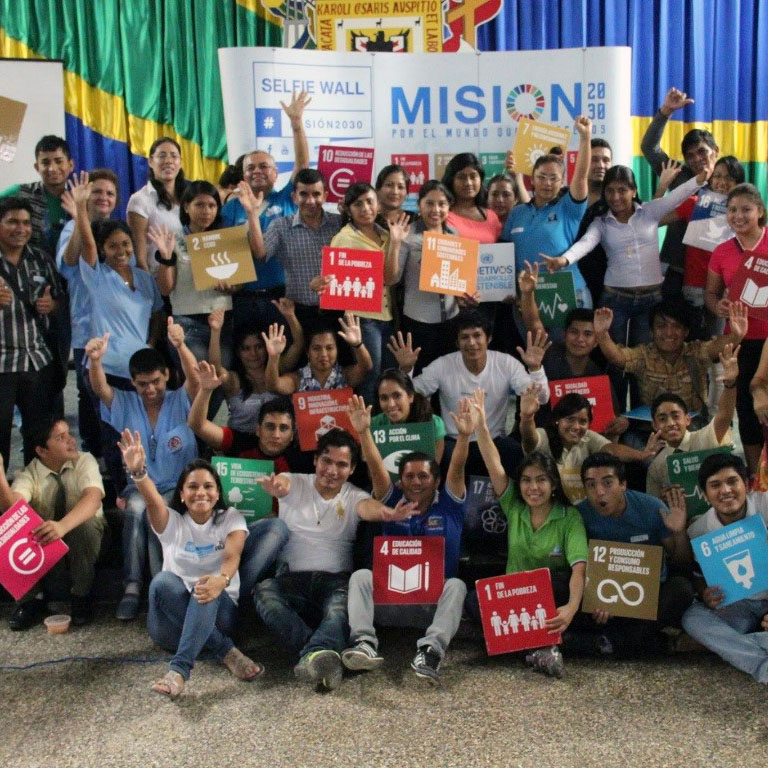The U.N. Volunteers program defines volunteerism as an action that an individual willingly undertakes, that is not financially compensated, and that generally contributes to the common good. The act or employ of volunteers essentially serves to elevate the wellbeing of individuals, communities, and the larger society; consequently, volunteerism values and promotes solidarity, reciprocity, trust, as well as feelings of belonging and empowerment. In the 21st century, general trends in international volunteerism fall into three categories: 1) development and proliferation of communication technologies, 2) increased global movement of people, and 3) new involvement of the private sector.
The invention and availability of new technologies have allowed volunteers to remain alert about world events as well as enabled them to engage with causes and organizations in ways that were not previously imaginable or feasible. Text messages have proved particularly useful to volunteers on the ground: whether texts serve to inform volunteers and community members about the spread of disease epidemics or to monitor election results and reports of corruption, it is hard to conceptualize contemporary volunteerism without them. Increased internet access allows volunteers who could not previously donate their time, due to distance or disability, to be more flexible in terms of how and when they donate their services. Volunteer-matching sites and social media platforms also constitute an avenue for volunteers to learn about and engage with international causes or organizations.
Another general trend in international volunteerism concerns the increased global movement of people, which may reflect average immigration numbers, travel for leisure, relocating for a job, or responses to political/economic/natural crises of some sort. Notably, the number of volunteers traveling abroad has increased substantially in the last decade. Traditionally, volunteers traveled from Northern countries to those in the South; however, today, volunteers are increasingly likely to travel between Southern nations or even from Southern nations to Northern ones. Short term volunteer opportunities have also emerged in an attempt to cater to people with an interest in traveling, such as students or people currently between jobs. In the 21st century, universities and corporations have increasingly come to promote international travel as a means of increasing global education and fostering skills development.
The newfound involvement of the private sector in volunteerism has also contributed to significant changes within the industry. In the current climate, businesses exist in a “moral marketplace” where consumers prefer companies that act as “good corporate citizens.” Consequently, organizations are obliged to practice corporate social responsibility by reflecting the economic, political, legal, and moral expectations that society has of corporations at a given time. Although businesses continue to participate in traditional means of giving, a number of corporations have also begun to encourage employee volunteering; some even go so far as to match dollars for the number of volunteer hours logged per employee. Employee volunteer programs provide NGOs with a unique opportunity to tap into a skilled workforce and should see more development in coming years.
Notably, although these trends have produced a number of positive developments in the volunteerism industry, they also present new problems and challenges. Critics often question the sustainability of short term volunteer programs, as well as the ability of organizations to effectively place skilled volunteers where their talents will prove most useful. Despite the advances ascribed to technologic developments, it is also important to note that access to technology is not necessarily equal or widespread in much of the developing world. Lastly, private sector companies do not always demonstrate a sincere interest in developing or promoting their volunteer programs. As an industry that relies on the goodwill and compassion of individuals, volunteerism will always encounter unique problems concerning sustainability, efficacy, and finances. However, in an increasingly interconnected world, it seems that people are more and more willing to learn about the problems that others face and devote their time to causes that matter.
Sources:
http://www.unv.org/fileadmin/docdb/pdf/2011/SWVR/English/SWVR2011_full_%5B06%5D_chapter3.pdf


Leave a Reply
You must be logged in to post a comment.